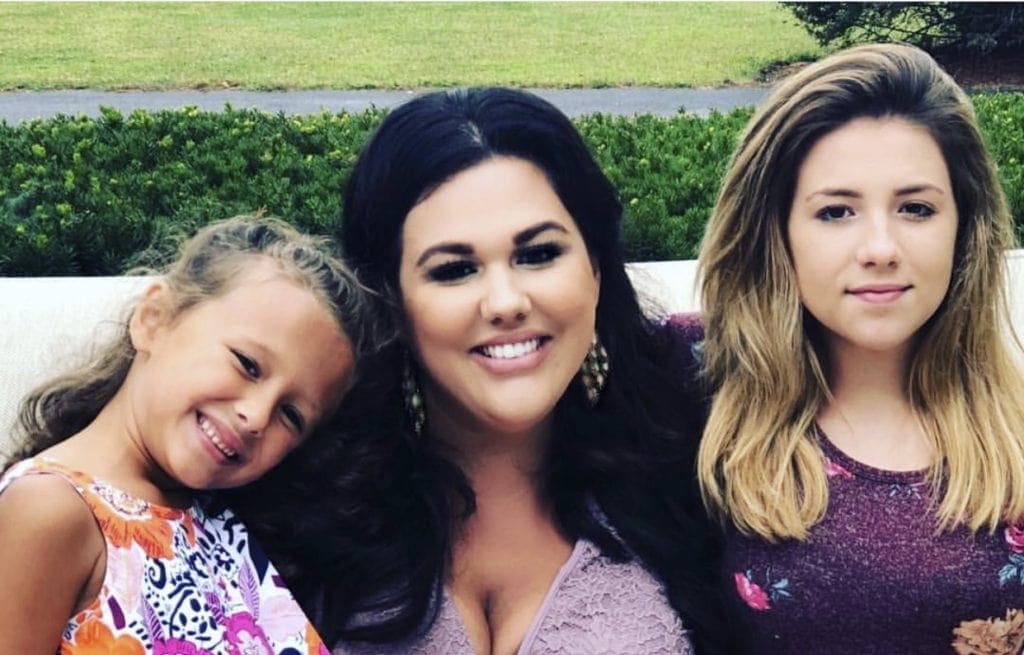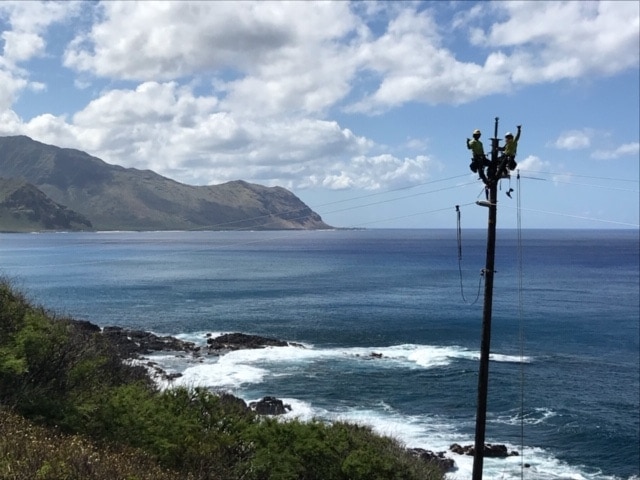Linemen are tough, so are their spouses
By Paula Aven Gladych
For Huskie Tools
Being the spouse of a lineman is not easy.
Linemen are on call 24/7 if they work locally or can be away for months, and even years, at a time if they don’t. They miss holidays, birthdays and anniversaries.
“If being together is important to you; if you can’t travel; this is not your lifestyle,” says Tracy Williams, the mother and stepmother of three who has been a line wife for 21 years.
Williams and her husband, Danny, live in Stuart, Virginia, in the heart of the Blue Ridge Mountains. When her husband first joined the industry, he was non-union, meaning he was home every night but was always on call, missing most major holidays and life events, particularly when severe weather such as snowstorms or hurricanes took down the power.
“You have to be a strong independent woman, taking care of his children and your children. You can’t have battles or arguments. They have dangerous jobs,” she says. If a couple has problems before one of them becomes a lineman, those problems will get worse over time, she adds.
“You have to have total trust and communication and know what you want in life. It is not a guessing game,” Williams says.
Danny went union in 2006 and has to travel for work. As a union worker, linemen are independent contractors and can choose where they are going and when and for how long, she says.
“We were able to choose our locations in the country and make it work,” she says. “When the kids grew up and were out the door, I went out the door with him.”
For the past six years, the duo has traveled all over for Danny’s job. They spent a year in the U.S. Virgin Islands working on hurricane recovery and recently came back from the Mariana Islands near Guam.
“It takes a very, very strong, mature relationship,” Williams said.

Amanda Greco has been a line wife for five years. She and her husband, Aaron Greco, got married shortly after he started his lineman apprenticeship. The couple lives in New Hampshire but Aaron travels constantly for his job.
“I compare it to the military lifestyle,” she says.
Before the couple married, they were living paycheck to paycheck. They were young parents, having their first daughter when they were 19.
“College was not something either of us was equipped for at the time or had the financial means for,” she says. “We struggled and lived paycheck to paycheck for a long time. Being a lineman was the means to the end of our financial worries.”
The couple sat down and weighed the pros and cons before Aaron jumped in with both feet. They knew he would be gone a lot but decided the benefits far outweighed the negatives.
“We took a big gamble,” she says. Aaron took a nearly year-long apprenticeship in Minnesota because he couldn’t get into a program in New England. At the time, their daughters were 7 and 1. That apprenticeship opened doors for the Grecos.
“Immediately we saw a financial benefit to it. In our situation, the sacrifice was worth it,” she says. Now, her husband travels constantly and is gone for a month or more at a time.
Greco says that a key to her family’s success has been their extensive support system of family and friends. It is important to have a good network surrounding the spouse who is left behind otherwise it is easy to become lonely and to dwell on the negatives of the lifestyle.

Renee Hansen, a line wife in Iowa, agrees that having a good support system is the main thing that keeps her family going.
“And he’s got to have a good internet connection so he can Facetime,” she says.
She and her husband, Jason, met during his second year as an apprentice through the union. They both had been married before and each had two daughters. They have a 9-year-old son together.
Hansen says it is also important to have something planned together that the family can look forward to or focus on. Line wives have to keep themselves busy.
“Another thing I learned is, don’t wish your life away. I used to have a countdown waiting for when I would see him again. … It sucks. But you have to live your life. You can’t just wish it away. You still have to live it.”
She says that the longest she went without seeing her husband was 101 days, when he was working in Hawaii. The last time he worked in California, it was 90 days. Her husband just left again for a year-long project in California.
Hansen used to be afraid that her husband would get hurt during his job as a lineman. She says that now that he is a general foreman and is no longer climbing poles, she feels much better about it. Her husband did witness a terrible accident last year. One of the crew forgot he was working on a hot line and touched it, losing both of his hands.
“You just never know. It is so scary. It was those things I worried about the most,” she says.
Greco tries not to focus on the dangerous aspects of her husband’s job. She has faith that he is smart and that as long as he and his crew are paying attention they will all come home safely.
“The biggest sacrifice is adapting to when he is home versus when he is gone,” she says. “When he is gone, it is like a switch turns on and off. I’m responsible for all this stuff here.”
When he’s home, she says the family is happy he is there but it takes time to get used to his presence again. Aaron was gone from October through March last year.
“It was a long time being on my own. You get into your own groove,” she adds.
Greco recommends that new line spouses be patient.
“You are going to have hard days and good days and you have to be strong. You cannot break over the fact he is gone for months at a time. You can’t focus on the length of time. Take it day by day,” she says.

Hansen agrees, saying that line spouses have to go with the flow.
“Things aren’t always going to be set in stone. You have to be able to go with the flow. A lot of times they are going to miss a lot of things but you can always have redos. You have to try not to worry and you’ve got to have support. You have got to have somebody. You can’t just be by yourself. I have friends and family who have got my back while he’s gone,” she adds.
Linemen can make a lot more money if they chase storms. Williams says that linemen families need to be smart with their money. She says emergency jobs pay a lot of money and it can feel like “you’ve won the lottery.”
But, she adds, it is important that families plan for the future.
“If you are not smart, you won’t have anything to show for what you worked for,” she says.
